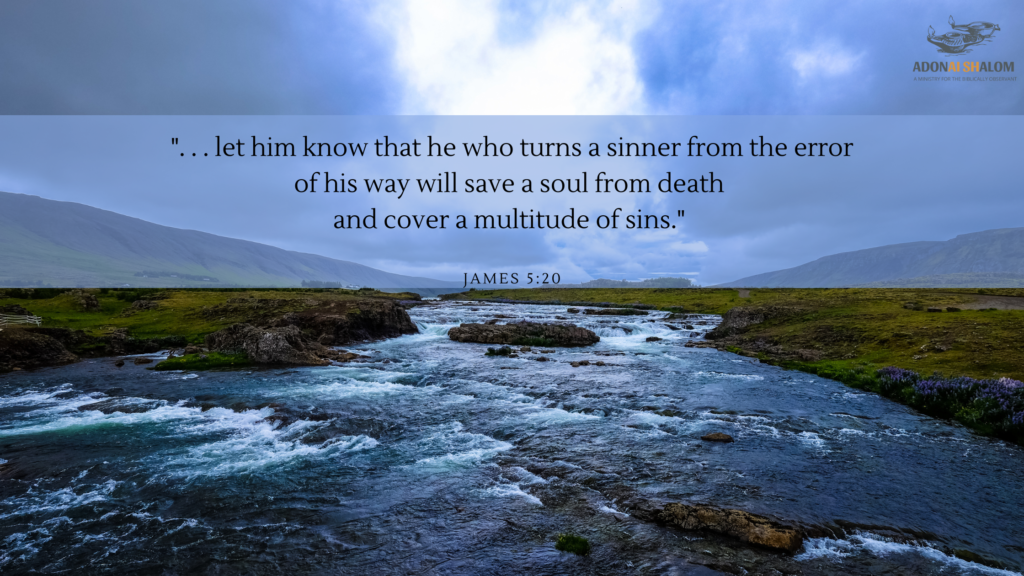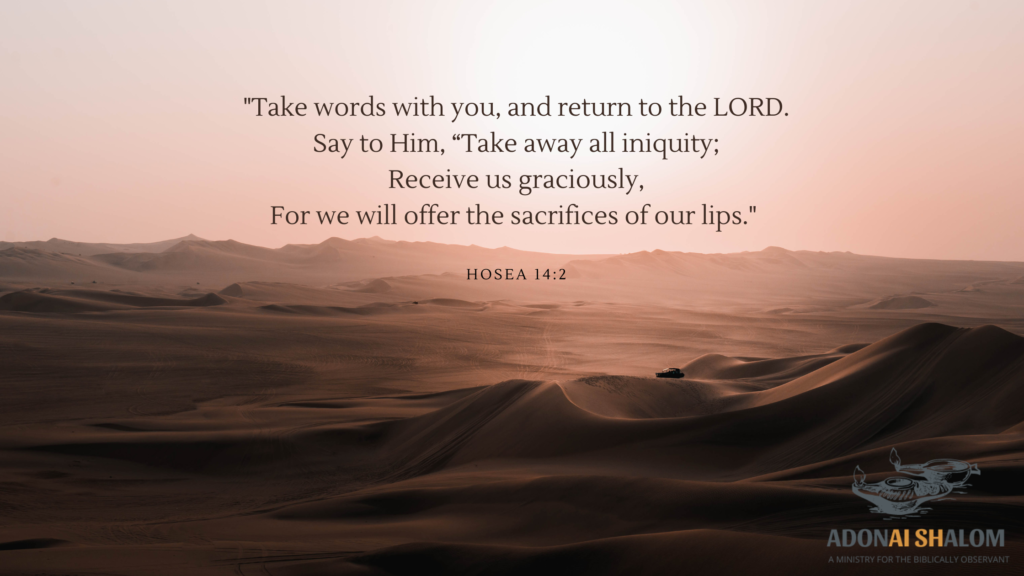The 5 R’s of Church Revitalization
20 Tevet 5784, B”H
The Need for Church Revitalization & Revival
Many churches today are in great need of spiritual revitalization.
Extensive programming, elegant building layouts, and cinematic lighting will never bring revival to the church.
Some churches have become like the Church at Sardis, spoken of in the book of Revelation:
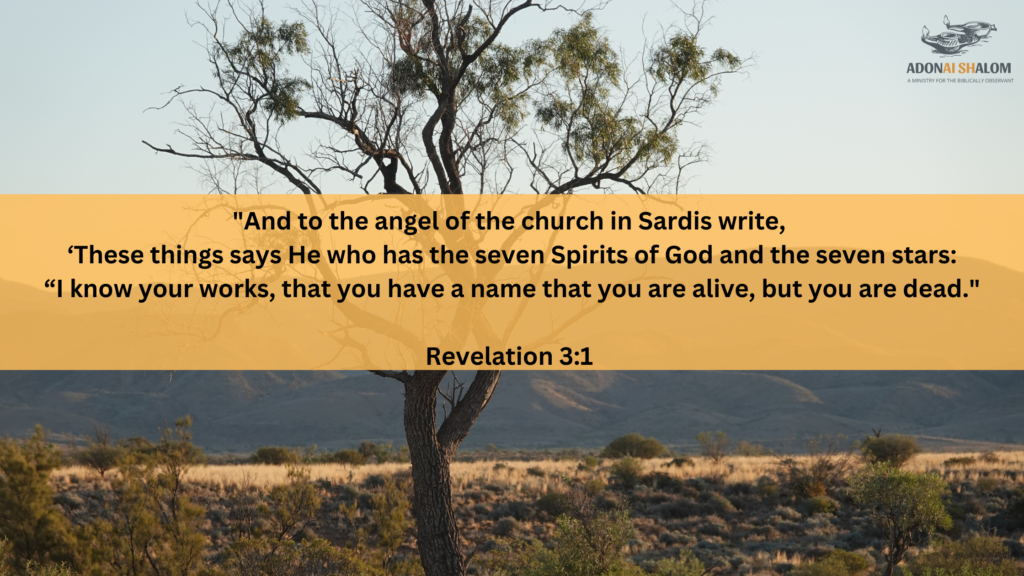
“And to the angel of the church in Sardis write, ‘These things says He who has the seven Spirits of God and the seven stars: “I know your works, that you have a name that you are alive, but you are dead.” Revelation 3:1 (NKJV) (emphasis added)
Is there hope for a church like this?
Can a church that believes it is alive, but is actually dead, experience spiritual renewal, revival, and revitalization?
The answer is: yes!
There is always hope in Jesus our Messiah!
Let’s examine some ways that established assemblies of believers can experience true church revitalization.
1. Revival Requires Repentance
Revival requires repentance – hungering hearts who long for a true, personal, and meaningful relationship with the Creator – with our Father who loves us and gave His Son to die on the cross for our sins.
I like the translation found in the NIV version of Habakkuk 3:2. Here, the Prophet Habakkuk expresses a longing for revival:
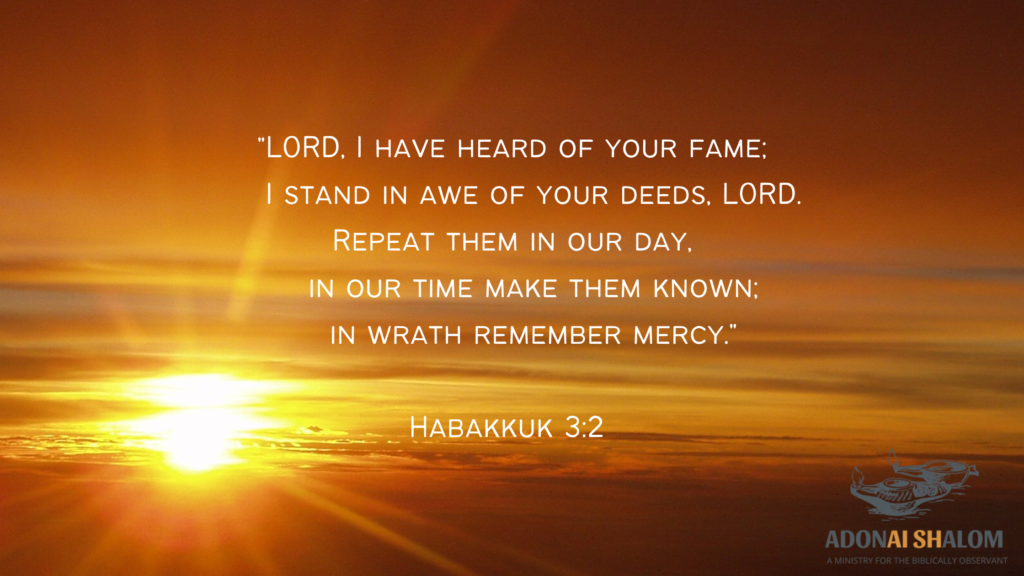
If a church genuinely wants to experience growth and a spiritual (and often, numerical!) turnaround, that entire congregation needs to get on its knees.
Remember all that God has done in the past! Give thanks for the history of that church!
I always remind church leaders that they must be cautious to entrust the future of their church to God’s Almighty plan, not to their own personal plans.
If we are sincere in our prayers that God will repeat in our day His awesome deeds, we must be willing to do things the way He leads us, not our own ways. When we are willing to obey Him and follow His leadership, we can experience a dramatic turnaround leading to noticeable church revitalization.
2. Revitalization is Restorative
Consider the etymology of the term, “revitalization.”
See the “vital” in there.
Have you checked your spiritual vitals? How is your spiritual pulse doing? Is your church or spiritual life’s heartbeat strong and life-giving?
To “re-vitalize” is “to give new life to” something again. Revitalization is life-giving.
Too many churches have settled in with their routine or their membership numbers. They are content because they make their budget every week, but is there truly “life?”
Life reproduces life. A healthy, life-giving church is full of people who have hearts for evangelism – reaching out to others in their community with the Gospel. Church revitalization occurs when a healthy church begins to see visitor numbers increase and overall enthusiasm increases among the church membership. This is very restorative and provides new hope across generations.
3. Recognition of what remains
Some churches will be beyond repair, in a sense.
Sometimes years of poor leadership, bad financial decisions, or a local crisis can cause a church to make the difficult decision to close its doors.
It can be quite the challenge to experience true church revitalization in a church that has become overly comfortable or unwilling to accept change. Nonetheless, restoration should always be the initial goal, with the acknowledgement/recognition that churches are imperfect human institutions that are not always ultimately viable despite our best efforts.
There are times when planting a new church altogether is a much better option.
The freshness of a new, exciting work led by the Holy Spirit can draw many new souls into a saving relationship with the LORD. Church planting can revitalize a community. If your church leadership is unsure whether or not to work toward church revitalization or scrap it and support the planting of a new church instead, there are church consultants who can help you discern some next steps.
Sometimes it seems we give up too soon on some of the established congregations. Seeking revival and revitalization in an already established church can also bring greater vitality to the surrounding community. However, this requires a great deal of patience and prayer so that the leadership as a whole will be open to the changes necessary to get back on track with outreach and ministry.

Working toward church revitalization is a process that requires patience and endurance.
A closer look at the Church in Sardis
Consider the passage from Revelation 3:1-6:
“And to the angel of the church in Sardis write, ‘These things says He who has the seven Spirits of God and the seven stars: “I know your works, that you have a name that you are alive, but you are dead.
The command here is to “be watchful” (v.2).
Observation and Caring Analysis
Sometimes the first step is to simply observe what is going on in a congregation that needs revival. What has caused the lackluster feeling that seems to abound? Did the congregation abandon key components of a healthy doctrine? Did a tragedy occur that damaged the health of the church or community?
Be watchful, in love.
Check out the next part of that same verse. “Strengthen the things which remain, that are ready to die…” (Rev.3:2).
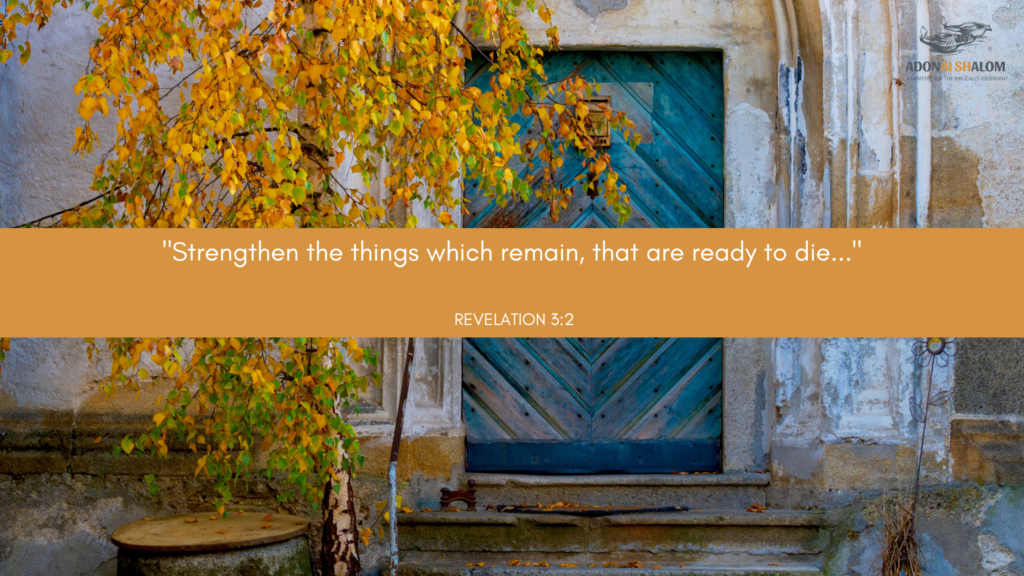
“Strengthen what remains.”
The Word of God doesn’t say, “abandon the things which remain” nor does it say “quit now.”
But the Word of God does acknowledge the life-cycle. That certain things are “ready to die.”
Maybe a devotion to certain carpet colors needs to die.
Maybe an obsession with certain music styles needs to die.
Maybe an overall mindset within the church that is hindering the work also needs to die.
Strengthening what remains
Strengthen what remains – make sure there is sound doctrine being preached and love being demonstrated. Make sure that what remains is so very strengthened that it has the capacity to receive newcomers and reach out to the community to invite them into the church.
“Remember therefore how you have received and heard . . .” Revelation 3:3
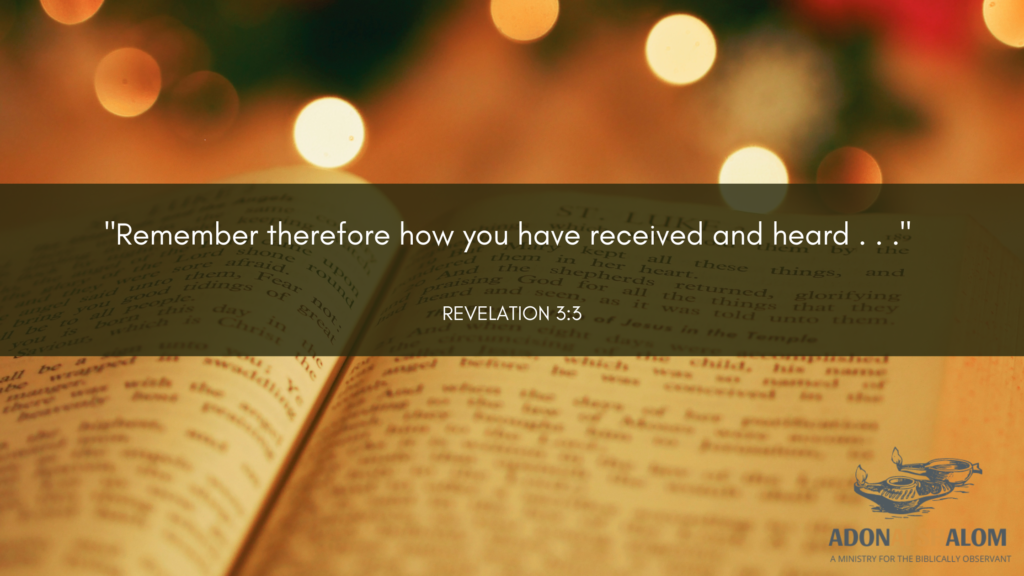
In order for a ministry to feel refreshed and truly become resurrected, that ministry needs to be standing on the firm foundation of the Word of God. Any deviation from that, and it will fall (and, in that case, probably should because any disinterest in sound doctrine is disinterest in remaining a truly Biblical work). Slick marketing campaigns can’t save a church, but God’s Word sure can.
Doctrinal soundness and purpose
Remember therefore, how you have received and heard. The congregation must be reminded of all that is their legacy. They have received the inheritance of the Gospel and must once again find purpose in that. Intentional church revitalization is not only possible, but it is something that should be sought.
Reminder: repentance is key
“Hold fast and repent.” Revelation 3:3
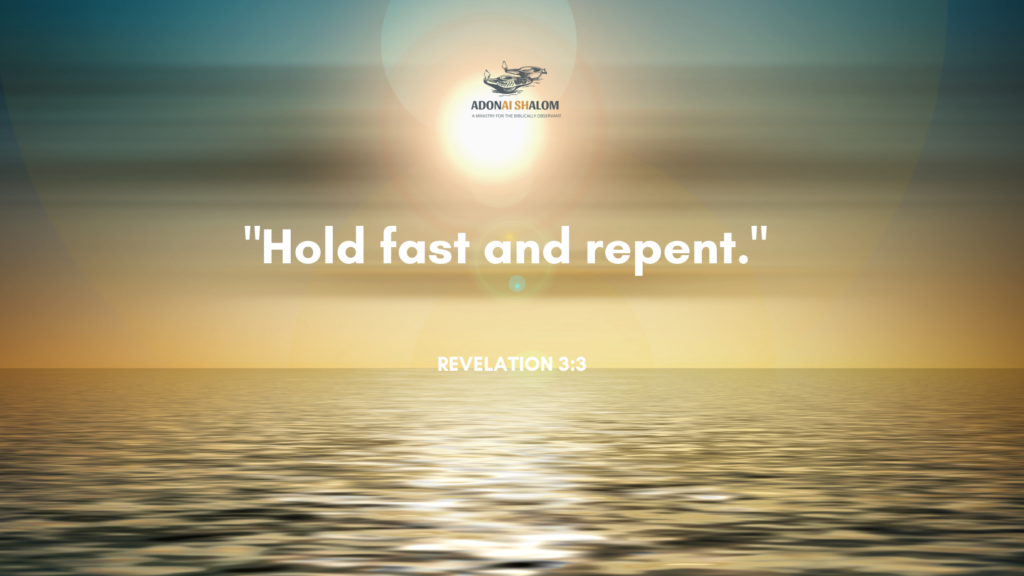
See, there it is. Repentance really is key. In a declining church, something happened at some point that caused the downward turn. Without repentance and a renewed vision, the work cannot be restored. But with repentance and obedience to God’s will and way, church revitalization is absolutely possible.
4. Reassurance for the Remnant
There often remains a remnant of faithful believers who find themselves attending a struggling church. These brothers and sisters in the LORD are charged with praying for church revitalization and remaining faithful wherever God has them.
God’s Word is ever filled with comforting reassurances for those who are truly a part of the remnant:
“They shall walk with Me in white.” Revelation 3:4

We shall walk with Jesus! Wearing white – blameless, for those who love the LORD have been declared worthy (Rev.3:4). Jesus (Yeshua) says that those who have been deemed faithful will not be blotted out from the Book of Life and He will confess our names before His Father and His angels (Rev.3:5).
Church leaders responsible to help an assembly in need of church revitalization should identify the true remnant in that place who have persisted faithfully. Establish consistent prayer meetings and pursue God for help in increasing the spiritual vitality of that local church body.
Signs of church revitalization
A church that is beginning to experience church revitalization will begin to reflect greater love toward one another and neighbors. It is important to pray against the spirit of spiritual apathy. A church that is making a positive turnaround will begin to truly love the community around them. You will notice greater warmth among the believers and heightened enthusiasm.
A healthy church is also multigenerational. If a church has become stagnant, this is often related to a lack of age diversity among the regular attendees. A sign that a church is experiencing revival or revitalization is the presence of many generations, worshipping together in unity. A vibrant church experiencing revival will naturally reach out to the wider community around them.
Churches experiencing revitalization will naturally grow. People will be attracted to the presence of the Spirit of the LORD among the people.
If your church is in need of restoration and revitalization, please let us know so we can be praying for you! Pray for the leaders involved with plans to revitalize ministries – for steadfastness and wisdom! It is exciting to walk with the LORD, and so rewarding as we see churches revitalized and restored!
But always remember – it is not we ourselves who can make these changes – we need the LORD who touches hearts and brings about the healing and restoration our churches need!



